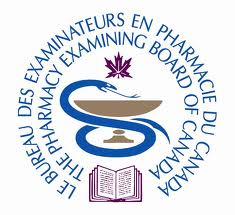Symptoms in the Pharmacy :Respiratory Problems (15)
Case 1
A young man presents in late May. He asks what you can recommend for hay fever. On questioning, he tells you that he has not had hay fever before, but some of his friends get it and he thinks he has the same thing.
A young man presents in late May. He asks what you can recommend for hay fever. On questioning, he tells you that he has not had hay fever before, but some of his friends get it and he thinks he has the same thing.
His eyes have been itching a little and are slightly watery,
and he has been sneezing for a few days. His nose has been runny and
now feels quite blocked. He will not be driving, but is a student at the
local sixth-form college and has exams coming up next week. He is
not taking any medicines.
The pharmacist’s view
This young man is experiencing the classic symptoms of hay fever for
the first time. The nasal symptoms are causing the most discomfort; he
has had rhinorrhoea and now has congestion so it would be reasonable
to recommend a corticosteroid nasal spray providing he is aged
18 or over. If he is under 18, an oral or topical antihistamine could be
recommended, bearing in mind that he is sitting for exams soon and so
any preparation that might cause drowsiness is best avoided. His eyes
are slightly irritated, but the symptoms are not very troublesome.
You know that he is not taking any other medicines, so you could
recommend acrivastine, loratadine or cetirizine. If the symptoms are
not better in a few days, he should see the doctor.
The doctor’s view
A corticosteroid nasal spray is likely to be more effective. If he cannot
use the OTC product because he is under 18, acrivastine, loratadine or
cetirizine would be worth a try. Even though they are generally nonsedating
they can cause drowsiness in some patients. The student
should be advised not to take his first dose just before the exam! If
his symptoms do not settle, then referral is appropriate. He may
benefit from sodium cromoglicate eye drops if his eye symptoms are
not fully controlled by the antihistamine. It is often worthwhile trying
an older antihistamine as an alternative because some people are
unaffected by the sedative properties, or an alternative non-sedating
one such as fexofenadine.
Case 2
A woman in her early thirties wants some advice. She tells you that she
has hay fever and a blocked nose and is finding it difficult to breathe.
You find out that she has had the symptoms for a few days; they have
gradually got worse. She gets hay fever every summer and it is usually
controlled by chlorphenamine tablets, which she buys every year and
which she is taking at the moment. As a child, she suffered quite badly
from eczema and is still troubled by it occasionally. She tells you that
she has been a little wheezy for the past day or so, but she does not
have a cough, and has not coughed up any sputum. She is not taking
any other medicines.
The pharmacist’s view
This woman has a previous history of hay fever, which has, until now,
been dealt adequately with chlorphenamine tablets. Her symptoms
have worsened over a period of a few days and she is now wheezing. It
seems unlikely that she has a chest infection, which could have been a
possible cause of the symptoms. She should be referred to the doctor at
once since her symptoms suggest more serious implications such as
asthma.
The doctor’s view
This woman should be referred to her doctor directly. She almost
certainly has seasonal asthma. In addition to the hay fever treatment
recommended by her pharmacist, it is likely that she would also
benefit from a steroid inhaler such as beclometasone. Depending on
the severity of her symptoms, she would probably be prescribed a
beta-agonist, such as a salbutamol inhaler, as well. This consultation is
a complex one for a doctor to manage in the usual 10 min available in
view of the time required for: information-giving, explanation about
the nature of the problem, the rationale for the treatments and the
technique of using inhalers.



Comments